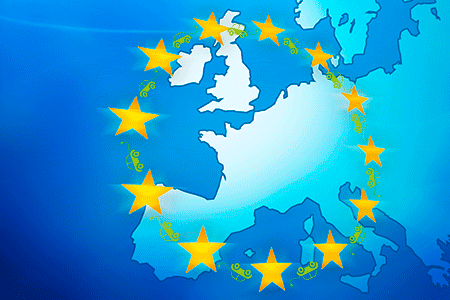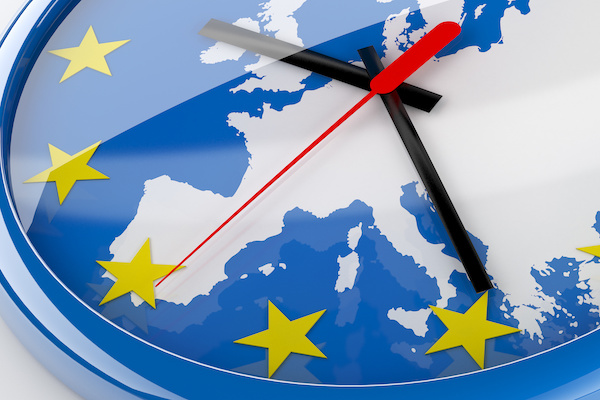12 October 2017
The Clean Energy Package: it is now or never!


Ten months after the publication of the “Clean Energy Package”, discussions in the Parliament and the Council are in the full swing. The Parliament is about to vote its first draft report in the ITRE committee this week –on the Energy Performance in buildings Directive – while the Council already adopted its general approach on the energy efficiency proposals last June. The French Union of Electricity underlines today the core issues for the French electricity sector and calls for French institutions to take action: the future of the French electricity system is now to be decided!
With its Clean Energy Package, the European Commission wants to speed up the energy transition. The French Union of Electricity welcomes several positive outcomes, in particular the increased central role given to “prosumers” in tomorrow’s European energy system thanks to a more flexible market and the guarantee of new rights for consumers. The Commission also reasserts the key role of system operators and addresses for the first time the social and industrial aspects of the energy transition, an issue the UFE has voiced for a long time. However, several provisions currently discussed will have a substantial impact for France.
Inconsistencies between the energy efficiency and renewable targets and the CO2 price
Building on the Paris Agreement, the European Commission has set ambitious European targets. It also proposed reinforcing regional initiative and put forward a new governance framework, in which the Commission can notably take corrective actions in case member states do not show enough commitment. But these new provisions are putting France at risk: should it fail to reach its renewable targets, it might be fined and obliged to contribute to a European platform.
Moreover, cross border support schemes for renewables, as designed by the Commission raise serious questions. To ensure fair tendering, coherent regulatory framework and economic conditions among Member States are needed. However today, European countries are facing different environmental constraints, have different tender rules in place, etc. Without an appropriate framework, such proposal might lead to distortion of competition.
Above all, the inconsistency between overarching objectives and policy instruments to address them might impede the EU to reach its objectives and hinder the energy transition. If ambition in terms of energy efficiency and deployment of renewable energy is desirable, these should be considered as leverages needed to shift towards a low-carbon economy and not objectives themselves. It is of utmost importance to put the reduction of greenhouse gas emissions back at the heart of the European energy transition. This is the core objective.
To make it happen, an ambitious reform of the ETS is essential. A strong CO2 price signal is indeed paramount to incentivise, at least cost, a change of habits and make sure that the European economies eventually shift towards low carbon industrial production assets. Consequently, the impact of energy policies on the ETS must be taken into account within the Governance framework precisely if we want to avoid increasing the price of GHG emissions’ reduction, which is what the industry is dreading. Let us not repeat the same mistakes as for the “3×20” targets of the third electricity package, and guarantee consistency between climate and energy policies!
Besides, pragmatism should prevail: ambitious targets must be coupled with flexibility in the implementation. While most of the MEP are supporting higher European targets and national ones, additional constraining framework will only increase costs for the society. The French Union of Electricity, together with other Member States that lead on renewables and energy efficiency (Sweden, Finland, Norway), consider that the European Union will only be able to reach its targets if the right governance framework that builds uponthe complementary strengths of the Member States, is put in place.
The market design reform cannot be done at the expense of the security of supply.
As the Estonian Presidency just released the first revision of the so-called Electricity Regulation and the Directive, it is of vital importance, now more than ever, to ensure a market design that provides the long-term signal necessary for the security of supply.
The “energy only” market’s approach, favoured by the Commission, is also widely supported by the other institutions, in particular the European Parliament. Improving short-term markets is a no-regret option, but removing price caps on wholesale market will not be enough to meet investors’ needs for mid and long-term visibility and economic stability. On this point, the Commission’s proposal recognizes capacity mechanisms, which aim to keep running or develop new capacities (of generation or demand response) that are essential to security of supply. However, it imposes unnecessary restrictions for their implementation. First, the introduction of those mechanisms should be conditioned to an annual European assessment made by ENTSO-E. Then, the European Parliament and the Council are proposing an even more constraining framework, making these mechanisms temporary and only used as a last resort. In fact, those restrictions would make capacity mechanisms ineffective, therefore putting at risk the security of supply for Member States. Such proposals would also increase legal instability, since several mechanisms such as the French and British ones have already been approved by the Commission for months and even years!
There again, one should recall the necessity to keep coherence between tools and objectives: if security of supply is not ensured by a capacity mechanism, in fine the consumer will pay the bill and face uncertainties. The French Union of Electricity therefore calls for a stable and non-discriminatory European framework for capacity mechanisms.
Finally let us not forget that security of supply, together with the management and security of the grid, is first and foremost the responsibility of the Member States. If UFE is in favour of strengthening of regional cooperation, the Commission’s proposals on Regional Operational Centres are going a step too far. The new market design therefore needs a fair balance of responsibility between the local, regional and European levels.
This is a major challenge: the European institutions’ positions are being currently decided, and so is the future of the electricity sector. It is therefore of vital importance that France makes his voice heard, before it is already too late!
Find out more
02 June 2020
“Long live Europe”: it’s time for Europe!
25 February 2020
Brexit: love last 47 years


About us
The Union of the French Electricity Industry is the trade association of the French electricity sector. We bring together companies from the whole value chain of the electricity industry.
Find out more









